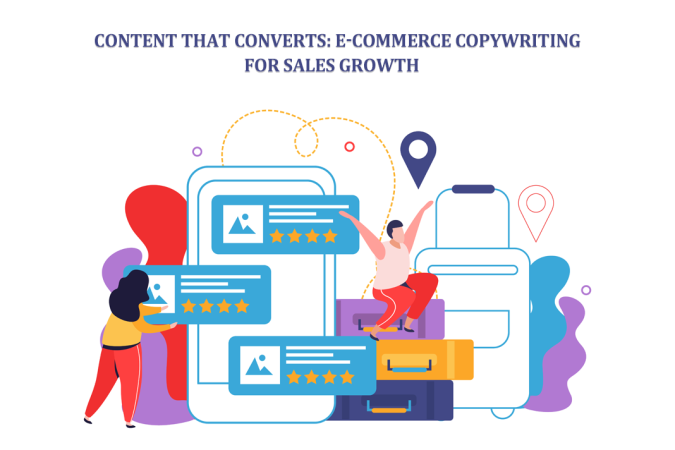
The Pros and Cons of Digital Marketing. In today’s fast-paced business world, digital marketing has become an essential part of any successful marketing strategy. With the rise of technology and the proliferation of digital devices, businesses are increasingly turning to digital channels to reach their target audience. While digital marketing offers many benefits, it’s not without its challenges and drawbacks. In this article, we’ll explore the pros and cons of digital marketing, as well as some of the advantages of traditional marketing. We’ll also provide an overview of some of the key digital marketing strategies to consider, and offer some insights into the future of marketing.
Introduction to Digital Marketing
Digital marketing has become a vital aspect of modern businesses. With the rise of technology, more and more businesses are turning to digital marketing strategies to reach their target market. In this article, we’ll explore the pros and cons of digital marketing and compare them to traditional marketing methods.
Defining Digital Marketing
Digital marketing refers to any marketing efforts that use digital channels to promote a product or service. This includes channels such as social media, email marketing, content marketing, search engine optimization (SEO), pay-per-click (PPC) advertising, and more.
The Role of Digital Marketing in Today’s Business World
Digital marketing has revolutionized the way businesses operate in the modern world. It allows businesses to reach a wider audience, target their ideal customers, and track and analyze their results in real-time. In today’s digital age, having a strong digital marketing strategy is key to staying competitive and relevant in the market.
Pros of Digital Marketing
Increased Reach and Visibility
One of the major benefits of digital marketing is the ability to reach a larger audience. With digital channels, businesses can connect with potential customers from all around the world, regardless of their physical location.
Lower Costs Compared to Traditional Marketing
Digital marketing can be much more cost-effective than traditional marketing strategies such as print or television ads. Many digital marketing channels, such as social media and email marketing, have low or no cost associated with them, making them an affordable option for businesses of all sizes.
Accurate Audience Targeting
Digital marketing allows businesses to target their ideal audience with precision. With tools such as Google Analytics and Facebook Audience Insights, businesses can gather data about their target market and use that data to create personalized marketing strategies that resonate with their audience.
Real-Time Results and Analytics
Digital marketing provides businesses with real-time results, allowing them to adjust their strategy on the fly. Analytics tools provide detailed insights into the performance of digital marketing campaigns, allowing businesses to quickly identify what’s working and what’s not.
Cons of Digital Marketing
High Competition and Saturation
While digital marketing provides businesses with a larger audience, it also means that they are competing with many other businesses for that same audience. The digital landscape is becoming increasingly saturated, making it harder for businesses to stand out from the crowd.
Difficulty in Building Trust and Credibility
Digital marketing can make it harder for businesses to build trust and credibility with their audience. With so many businesses vying for attention online, consumers can be skeptical of new businesses or products that they encounter online.
Privacy Concerns and Cybersecurity Risks
The rise of digital marketing has also led to concerns about privacy and cybersecurity. Businesses must take steps to protect their customers’ data and ensure that they are complying with laws and regulations around data privacy.
Constantly Evolving Digital Landscape
Digital marketing is constantly evolving, which means that businesses must stay on top of the latest trends and technologies to remain competitive. This requires both time and resources, which can be a challenge for smaller businesses.
Advantages of Traditional Marketing
Higher Tangibility and Personalization
Traditional marketing methods such as print or television ads offer a higher level of tangibility and personalization. Customers can physically touch and see the product or service in a way that digital marketing cannot replicate.
Established and Proven Strategies
Traditional marketing methods have been around for decades and have established strategies that have proven to be effective for businesses. This can make them a safer and more reliable option for businesses who are hesitant about investing in digital marketing.
Less Dependence on Technology
Traditional marketing methods do not rely on technology as much as digital marketing. This means that businesses do not have to worry about technological issues or changes in the same way that they do with digital marketing.
Effective in Local and Niche Markets
Traditional marketing methods can be particularly effective for businesses targeting local or niche markets. They can use tactics such as local newspaper ads or direct mail campaigns to reach specific audiences in a targeted way.
Digital Marketing Strategies to Consider
As businesses continue to shift their focus towards digital channels, digital marketing strategies are becoming increasingly important. Here are four key strategies to consider:
Search Engine Optimization (SEO)
SEO involves optimizing your website and online content to rank higher on search engine results pages (SERPs), thereby increasing visibility and traffic to your website. Effective SEO includes keyword research, on-page optimization, and creating high-quality content that satisfies user intent.
Social Media Marketing
Social media marketing involves using social media platforms like Facebook, Instagram, and Twitter to increase brand awareness, engagement, and sales. Effective social media marketing involves creating compelling content, building a community around your brand, and strategically using paid advertising.
Email Marketing
Email marketing involves sending targeted messages to subscribers who have willingly provided their contact information. Effective email marketing includes creating personalized and relevant content, segmenting your email list, and tracking metrics like open rates and click-through rates.
Content Marketing
Content marketing involves creating and distributing valuable content that attracts and engages your target audience. Effective content marketing includes developing a content strategy, using various formats like blogs, videos, and infographics, and measuring the success of your content through metrics like shares and engagement.
Conclusion and the Future of Marketing
Digital marketing offers many advantages over traditional marketing methods, including greater reach, lower costs, and better targeting. However, it’s important to choose the right mix of marketing strategies to suit your business goals and target audience.
Choosing the Right Marketing Mix
To choose the right marketing mix, businesses need to consider their target audience, marketing budget, and business goals. A well-rounded marketing mix may include both digital and traditional marketing methods, depending on what works best for your business.
The Integration of Digital and Traditional Marketing
The integration of digital and traditional marketing methods can create a more cohesive and effective marketing strategy. For example, a print ad can include a social media call-to-action, or an email campaign can promote an upcoming event.
The Importance of Keeping Up with Digital Marketing Trends
Digital marketing is a rapidly evolving field, and it’s important to stay up-to-date with the latest trends and technologies. This includes understanding changes in search engine algorithms, emerging social media platforms, and new digital advertising strategies. By staying current with trends, businesses can stay ahead of the competition and continue to grow their online presence.In conclusion, both digital and traditional marketing have their own unique advantages and drawbacks, and the key to success lies in finding the right balance that works for your business. By understanding the pros and cons of digital marketing, you can make informed decisions about which strategies to implement to achieve your marketing goals. With the right approach, digital marketing can help you reach new audiences, build your brand, and ultimately grow your business.
FAQ
What is digital marketing?
Digital marketing is a broad term that encompasses a range of online marketing activities, including social media marketing, email marketing, search engine optimization (SEO), content marketing, and more. The goal of digital marketing is to reach your target audience through a variety of digital channels to drive engagement, build brand awareness, and ultimately generate leads and sales.
What are the advantages of digital marketing?
Digital marketing offers a range of benefits, including increased reach and visibility, lower costs compared to traditional marketing, accurate audience targeting, and real-time results and analytics. It also offers greater flexibility and the ability to adapt quickly to changing market conditions.
What are the disadvantages of digital marketing?
Some of the drawbacks of digital marketing include high competition and saturation, difficulty in building trust and credibility, privacy concerns and cybersecurity risks, and the constantly evolving digital landscape, which requires businesses to stay up-to-date with the latest technology and trends.
How can businesses integrate digital and traditional marketing?
To achieve the greatest impact, businesses should look to integrate their digital and traditional marketing efforts. This might involve using digital channels to supplement traditional marketing campaigns, or using traditional marketing channels to promote digital campaigns. The key is to create a cohesive, integrated marketing strategy that leverages the strengths of both approaches.
Read More :





